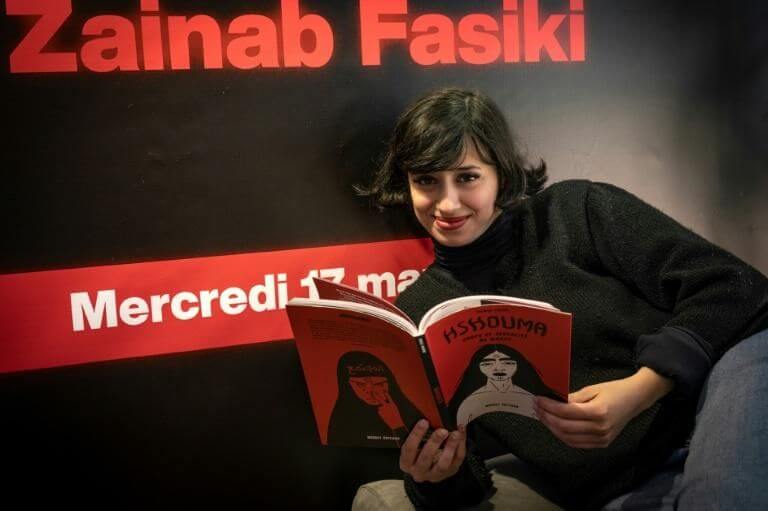
A Moroccan Uses Comic to Highlight #Metoo Campaign
A Moroccan artist is drawing attention on the #MeToo campaign using comic art.
Quite a number of students and professionals have joined forces with Zainab Fasiki, a pioneer in comics and illustration to depict women’s real-life ordeals.
As part of the series, “Ta ana” meaning “Me Too” in Moroccan Arabic dialect, the artist illustrated the harrowing tales of a 22-year-old woman who was for years raped by her brother, to the indifference of her parents.
“Recently, we created the series “METOO” “TAANA” (Me Too), because it is a project that illustrates real stories of rape of Moroccan women, and I had the honour to execute it with Moroccan artists who are very talented, women and men”, Fasiki said.
Series producer Youssef Ziraoui says rape victims in Morocco not only have to deal with a sense of “shame” and the risk of being cast out by their families, but can face charges for sex before marriage under Moroccan law if they go to the police.
“#TaAnaMetoo is part of the whole project that we have launched at JAWJAB of liberation of women’s speech. However the liberation of women’s speech does not mean visibility for the women, as they are anonymous for the simple reason that they were all victims of rape and are afraid to testify openly out of fear of reprisals”, Ziraoui, said.
The comic artist says she became a feminist at age 14, when she began to feel that often “being a woman is a sin” in the North African country. She added that ‘’men treat us as if we weren’t humans who are responsible for our choices.” Fasiki is pushing through her illustrations for “changes to laws written by men, for men, to control women’s bodies”, she adds.
“I’ve been proud of my feminism since I was 14, but I’ve been proud of it artistically since I was 20, I think. In fact I consider myself an “artivist” because that’s a neologism that means being both an artist and an activist. So I’m glad that art has become a tool for political and social change”, she said.
Unlike the broader #MeToo movement, Moroccan women who have agreed to share their stories for the campaign have preferred to remain anonymous.
Fasiki became popular on social media over nude self-portraits and for illustrations showing “the female body as it is, without taboos”.
Her book “Hshouma” which literally means modesty, is a term she says covers “the culture of shame” around women’s bodies in Morocco, and has taken her to a wider audience, in a country where sex education is also taboo.
Fasiki explained how she was unable to get a local publisher for “Hshouma”, and the book’s first edition was instead published in Paris in 2019.
Florent Massot, her French publisher, said the book had had “good sales” in Morocco.
“Zainab is very courageous,” he said. “She is always very positive even though she gets insulted a lot on social media.”
The Moroccan artist is preparing for an exhibition at a contemporary art museum in Tetouan, and will also be teaching at a fine arts school in the northern Moroccan city.
She says she is looking forward to countering “artists who preach against artistic nudity”,

